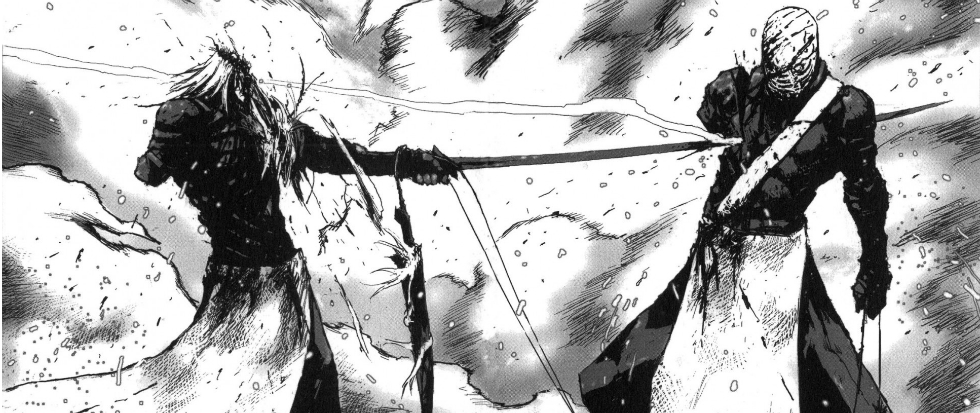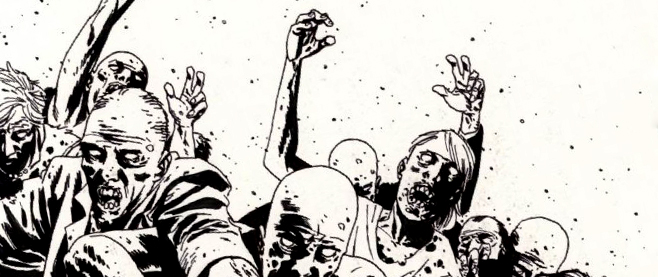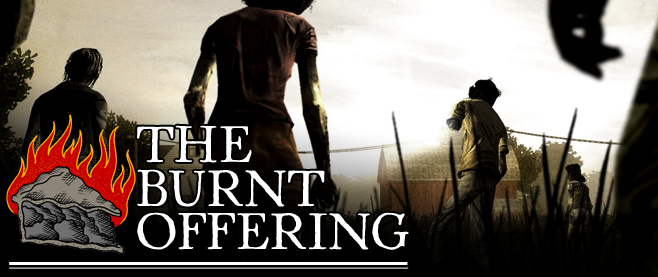
Biomega: A Nightmare of Scale
All of my favorite science fiction stories might just as well be called horror stories. There just seems to be a natural overlap between the two genres. In some cases that overlap is clear: there’s no doubt Alien was intended to jolt people out of their seats. In others, though, my taste seem to run contrary to the author’s vision: I’ve always found Neon Genesis Evangelion appealing more for its ability to unnerve than for its celebrated character building.
I’m not sure that Tsutomu Nihei conceived of his manga Biomega as a horror story when he started it. It’s too noisy an affair, with panels full of explosive gun battles and a pace that jets along like protagonist Zoichi’s nuclear powered motorcycle. When his surrogate mother dies, Zoichi spends all of a panel panel lamenting before he guns down the party responsible. There’s no time for human emotion and, consequently it would seem, no time for horror.
In fact, Nihei’s horrors work not so much by accentuating the human as by rendering it insignificant through display of scale, often times a scale so exaggerated it might be comical if it were not so unnerving. The second half of the story takes place on a coiled world over five billion kilometers in length; the chronology is measured in centuries, during which time characters who seemed destined for greatness simply fade out, never to be mentioned again.
Buildings are so large and so detailed in presentation – their intricate gothic design more striking than the people scurrying about them – that they seem as if they’re alive: the pipes winding through them and the rounded abuttments growing off of them like warts suggest more giant organism than any man made architecture. In this scheme, people are so insignificant that it’s no wonder their stories fail to register, and no wonder that Biomega unnerves me in the way only the best science fiction can.
Because the horror of science fiction is a horror of scale. Human lives just seem so vulnerable, so small when measured against billions of miles or when dwarfed by gargantuan, alien-seeming ruins, extinction so close when the story stretches for centuries. What kind of nightmares are lurking in the vastness of spaces or in the murk of eons, unseen for ages but slowly stirring awake? How can a single life be worth anything when it won’t last long enough to see the end of the story it began? When technology has advanced to the point that it transforms people into something unrecognizable, how can we even hope to relate? The truth is that we cannot, that none of the precepts that now comfort us hold up before such scope: security is a matter of control and significance, and science fiction is a genre built on upending such stabilites. No wonder it crosses so effortlessly into horror.




